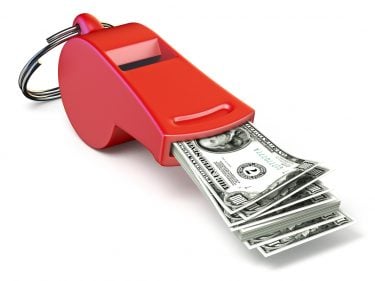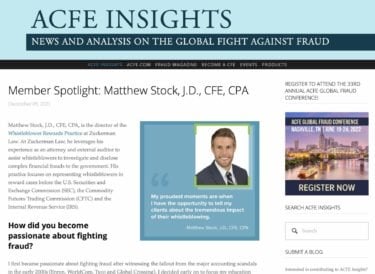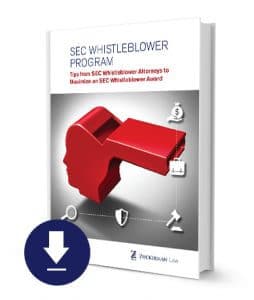The SEC’s International Reach Against Fraudsters
Yes. The antifraud provisions of the federal securities laws apply extraterritorially:
- When the wrongful conduct occurred in the United States; or
- When the conduct outside the United States had a substantial effect in the United States or upon United States citizens.
This is known as the “conduct-and-effects” test. Courts have applied this test for over 40 years notwithstanding the fact that the federal securities acts of 1933 and 1934 did not address the extraterritorial reach of the antifraud provisions of those statutes. On June 24, 2010, the Supreme Court of the United States held in Morrison v. Nat’l Australia Bank Ltd. that the lower courts were wrong to apply the conduct-and-effects test. Then, less than a month after the Morrison decision, Congress enacted the Dodd-Frank Act, which amended the jurisdictional provisions of the federal securities acts to clearly indicate that the anti-fraud provisions apply extraterritorially when the statutory conduct-and-effects test is met.
The Conduct-and-Effects Test
Through the Dodd-Frank Act, Congress amended the federal securities laws to include the conduct-and-effects test:
The district courts of the United States and the United States courts of any Territory shall have jurisdiction of an action or proceeding brought or instituted by the Commission or the United States alleging a violation of section 77q(a) of this title [Section 17(a) of the 1933 Securities Act] involving—
- conduct within the United States that constitutes significant steps in furtherance of the violation, even if the securities transaction occurs outside the United States and involves only foreign investors; or
- conduct occurring outside the United States that has a foreseeable substantial effect within the United States. See 15 U.S.C. § 77v(c).
SEC Enforcement Action Against International Ponzi Scheme
 On January 24, 2019, in SEC v. Scoville, the United States Court of Appeals for the Tenth Circuit held (see opinion below) that Congress, in enacting the Dodd-Frank Act’s amendments to the jurisdictional provisions of the securities laws, “undoubtedly intended that the substantive antifraud provisions should apply extraterritorially when the statutory conduct-and-effects test is satisfied.” The Tenth Circuit proceeded to apply the test to a $207 million international Ponzi scheme, which had 90% of its customers outside the United States. The Ponzi scheme involved the sales of investment contracts by Traffic Monsoon, LLC, whose sole owner and member is Charles Scoville. The Tenth Circuit found that the Defendant’s actions satisfied the conduct-and-effects test because:
On January 24, 2019, in SEC v. Scoville, the United States Court of Appeals for the Tenth Circuit held (see opinion below) that Congress, in enacting the Dodd-Frank Act’s amendments to the jurisdictional provisions of the securities laws, “undoubtedly intended that the substantive antifraud provisions should apply extraterritorially when the statutory conduct-and-effects test is satisfied.” The Tenth Circuit proceeded to apply the test to a $207 million international Ponzi scheme, which had 90% of its customers outside the United States. The Ponzi scheme involved the sales of investment contracts by Traffic Monsoon, LLC, whose sole owner and member is Charles Scoville. The Tenth Circuit found that the Defendant’s actions satisfied the conduct-and-effects test because:
- The Defendant’s company was located in the United States.
- Through his company, the Defendant created and promoted the investments over the internet while residing in the United States.
- The servers housing the company’s website were physically located in the United States.
The Tenth Circuit is the first Circuit Court to address the scope of the SEC’s extraterritorial enforcement authority under the Dodd-Frank Act. The opinion highlights the SEC’s expansive international reach against fraudsters:
SEC International SchemesFor additional analysis of the Tenth Circuit’s opinion, see a recent article in the Harvard Law School Forum on Corporate Governance and Financial Regulation, A New Era of Extraterritorial SEC Enforcement Actions.
In November 2019, the U.S. Supreme Court declined to review the case.
SEC Whistleblower Program
 Regardless of citizenship, under the SEC Whistleblower Program, whistleblowers are eligible for monetary awards when they provide original information to the SEC about violations of federal securities laws. Whistleblowers are eligible to receive between 10% and 30% of the monetary sanctions collected if their tip leads to a successful enforcement action resulting in monetary sanctions exceeding $1 million.
Regardless of citizenship, under the SEC Whistleblower Program, whistleblowers are eligible for monetary awards when they provide original information to the SEC about violations of federal securities laws. Whistleblowers are eligible to receive between 10% and 30% of the monetary sanctions collected if their tip leads to a successful enforcement action resulting in monetary sanctions exceeding $1 million.
Since the beginning of the whistleblower program, the SEC has received whistleblower tips from individuals in approximately 133 countries outside the United States. In FY 2021 alone, the SEC received whistleblower submissions from individuals in 99 foreign countries.
In FY 2021, the successful whistleblowers recognized by the Commission hailed from six continents. In total, approximately 20% of the meritorious claimants in FY 2021 were based outside of the United States.
To date, the SEC Whistleblower Office has issued approximately $1.8 billion in awards to whistleblowers, including multi-million dollar awards to our clients. The largest SEC whistleblower awards to date are $279 million, $114 million, $110 million, $104 million, and $50 million.
For more information about the SEC Whistleblower Program, see the eBook Tips from SEC Whistleblower Attorneys to Maximize an SEC Whistleblower Award.
Click below to hear SEC whistleblower lawyer Matt Stock’s tips for SEC whistleblowers:
Recently the Association of Certified Fraud Examiners published a profile of Matt Stock’s success working with whistleblowers to fight fraud:
SEC Whistleblower Lawyers
The leading international SEC whistleblower attorneys at Zuckerman Law have extensive experience representing SEC whistleblowers both domestically and internationally. If you have original information about a potential violation of the U.S. federal securities laws, contact an international SEC whistleblower attorney at Zuckerman Law for a free, confidential case review by calling 202-930-5901.
The international SEC whistleblower attorneys at Zuckerman Law have represented whistleblowers worldwide, including in Australia, China, Europe, India, Angola, Central America, the United Kingdom, the Middle East, Afghanistan, Argentina, and Canada, and currently represent whistleblowers worldwide in assisting the SEC in active investigations and litigation. We helped a whistleblower abroad obtain a multi-million dollar SEC whistleblower award. See our column in Forbes: One Billion Reasons Why The SEC Whistleblower-Reward Program Is Effective.
To learn more about the SEC Whistleblower Program, download Zuckerman Law’s eBook:
whistleblower_lawyers_012017_infographic










